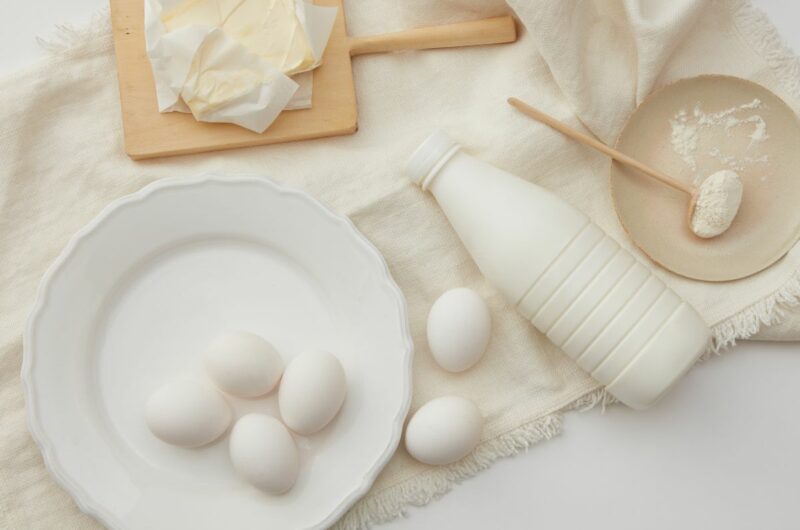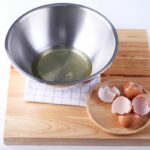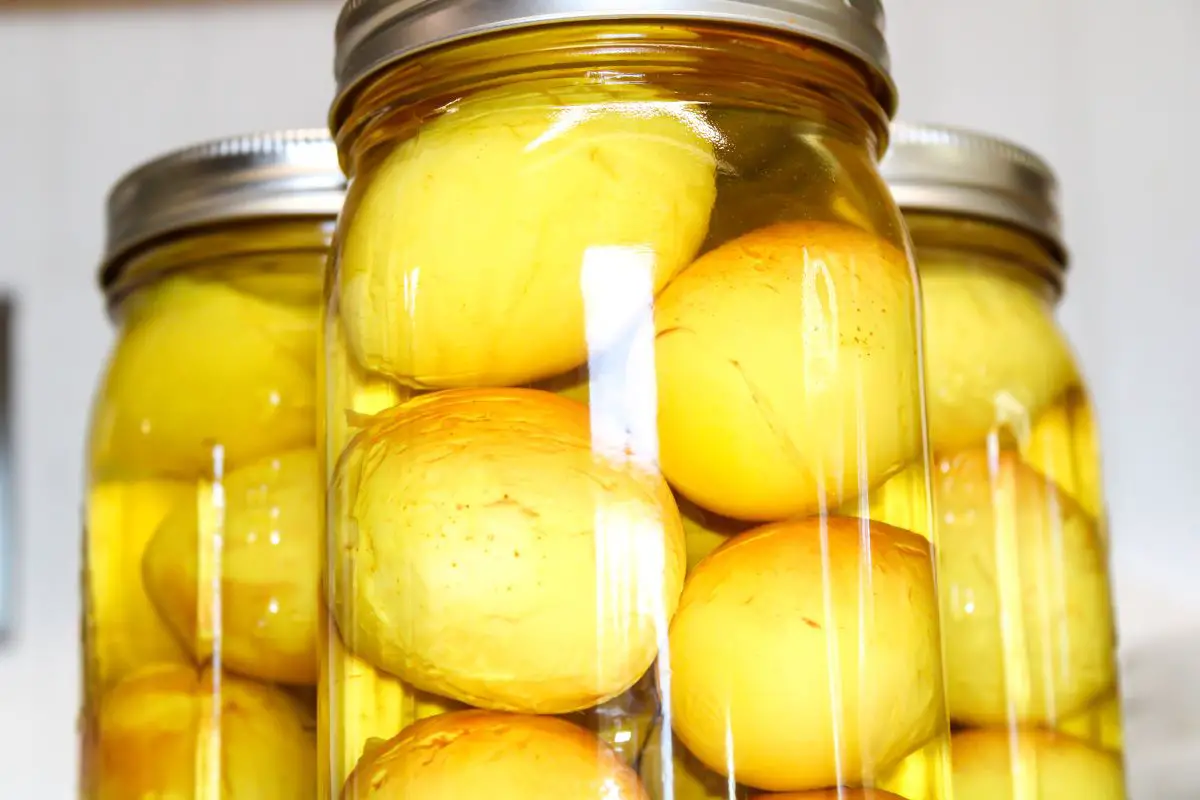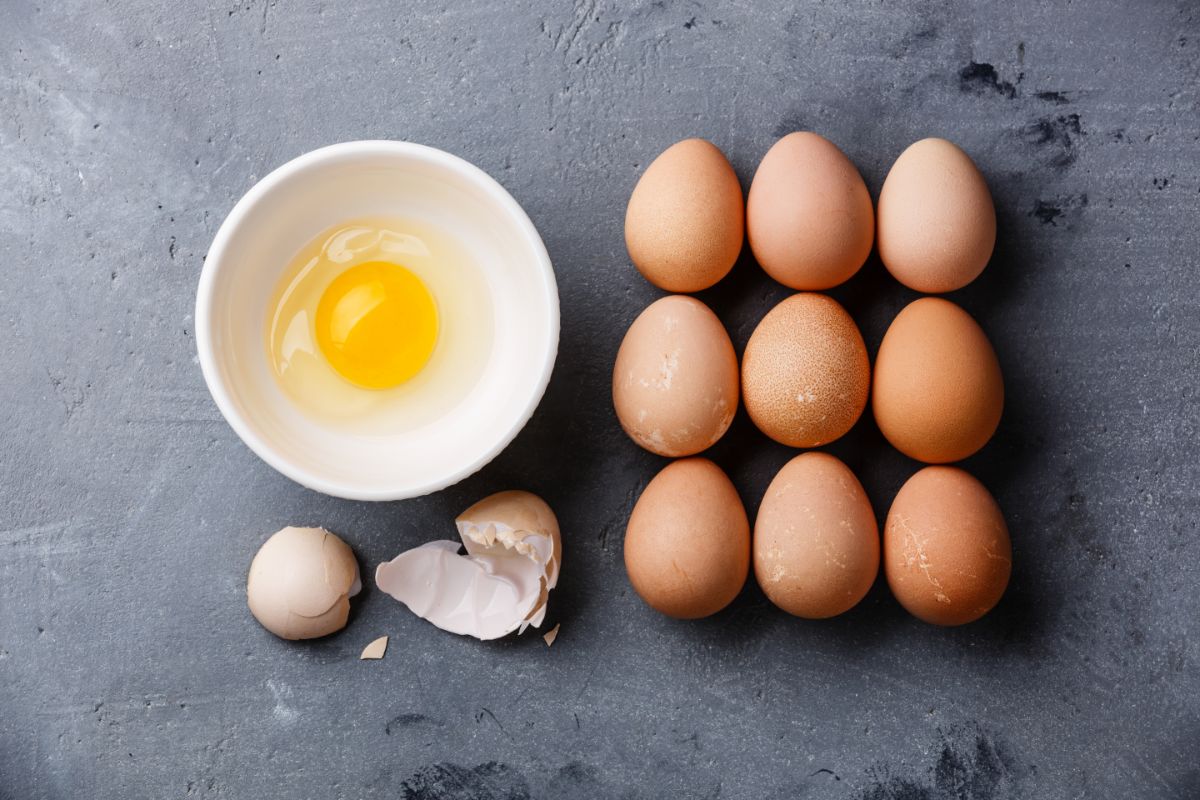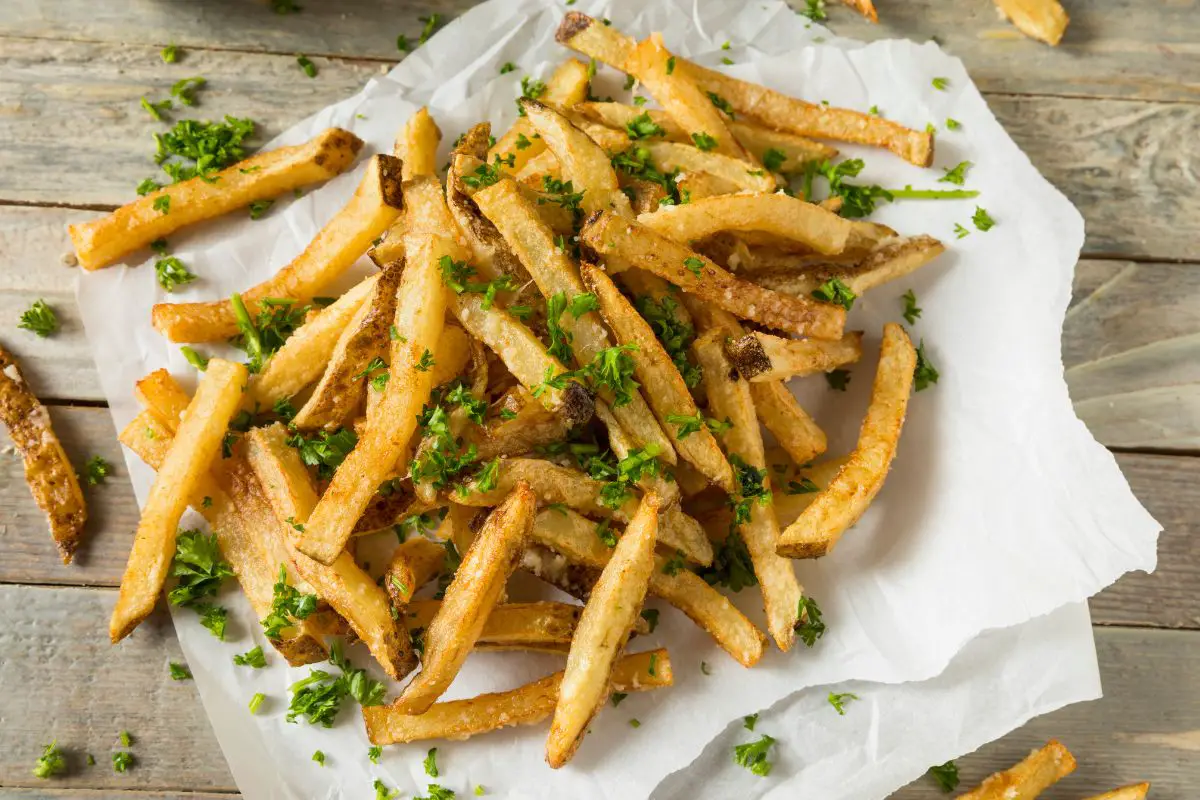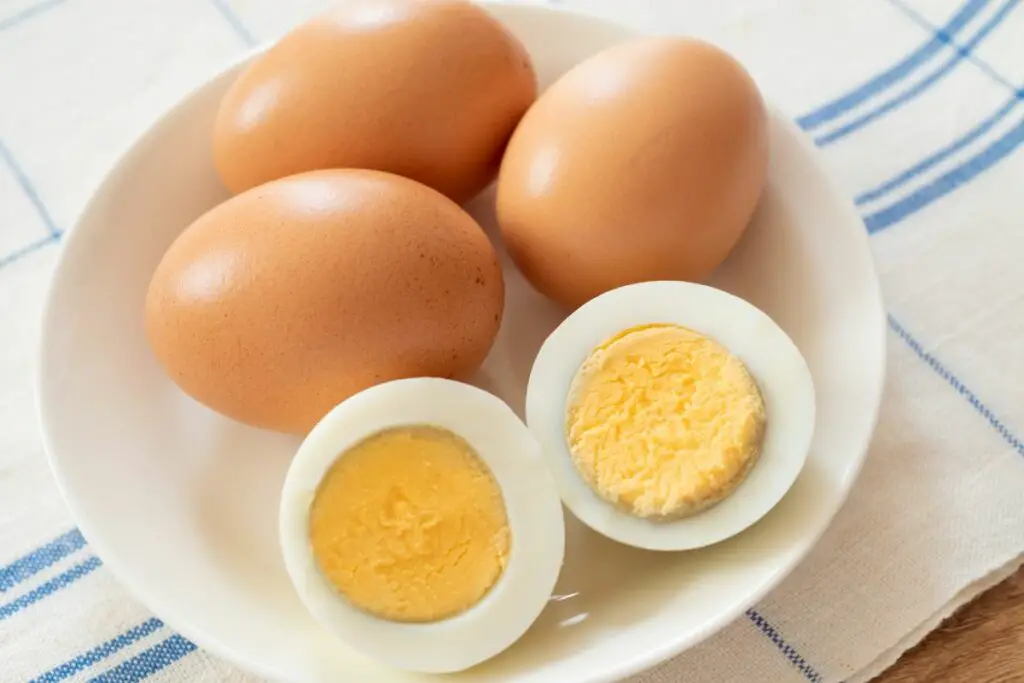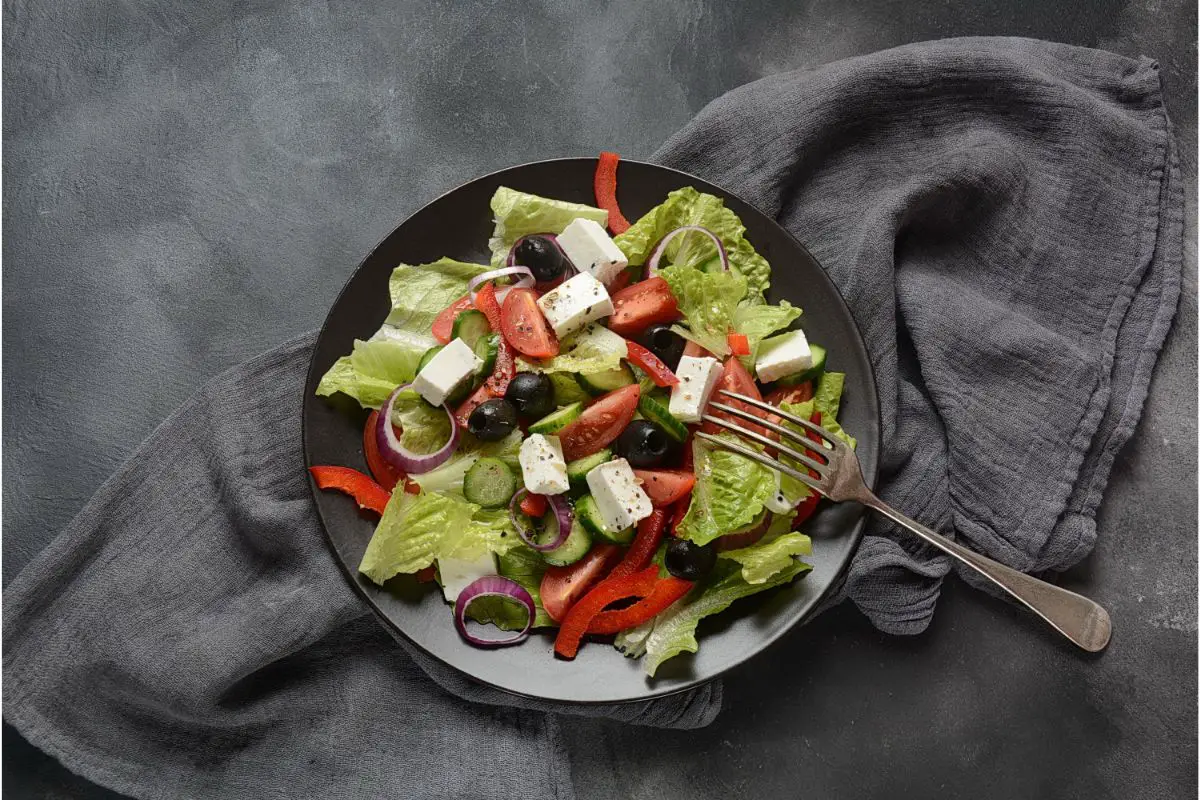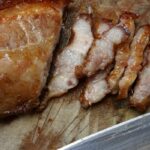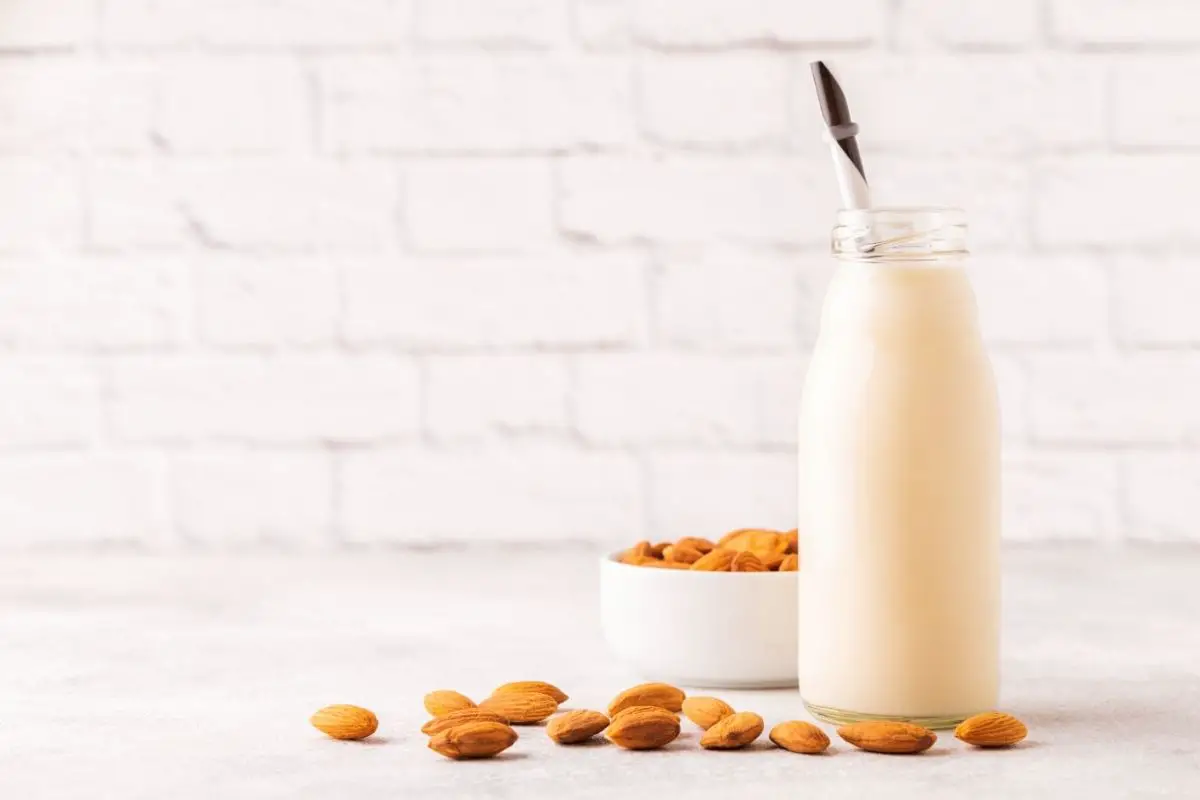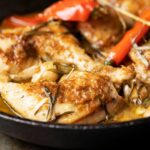Breading is a common process used to make crispy fried foods, and is commonly used on pork, chicken, and fish – although the alternatives are numerous.
This commonly requires something called ‘egg wash’ – that is, a mixed combination of egg whites and yolks to create a covering that can be brushed over the finished products before frying or cooking in the oven.
This helps to create a crispier, browner finish, and helps to seal in the food during cooking.
But what substitutes are there for eggs, and how effective are they?
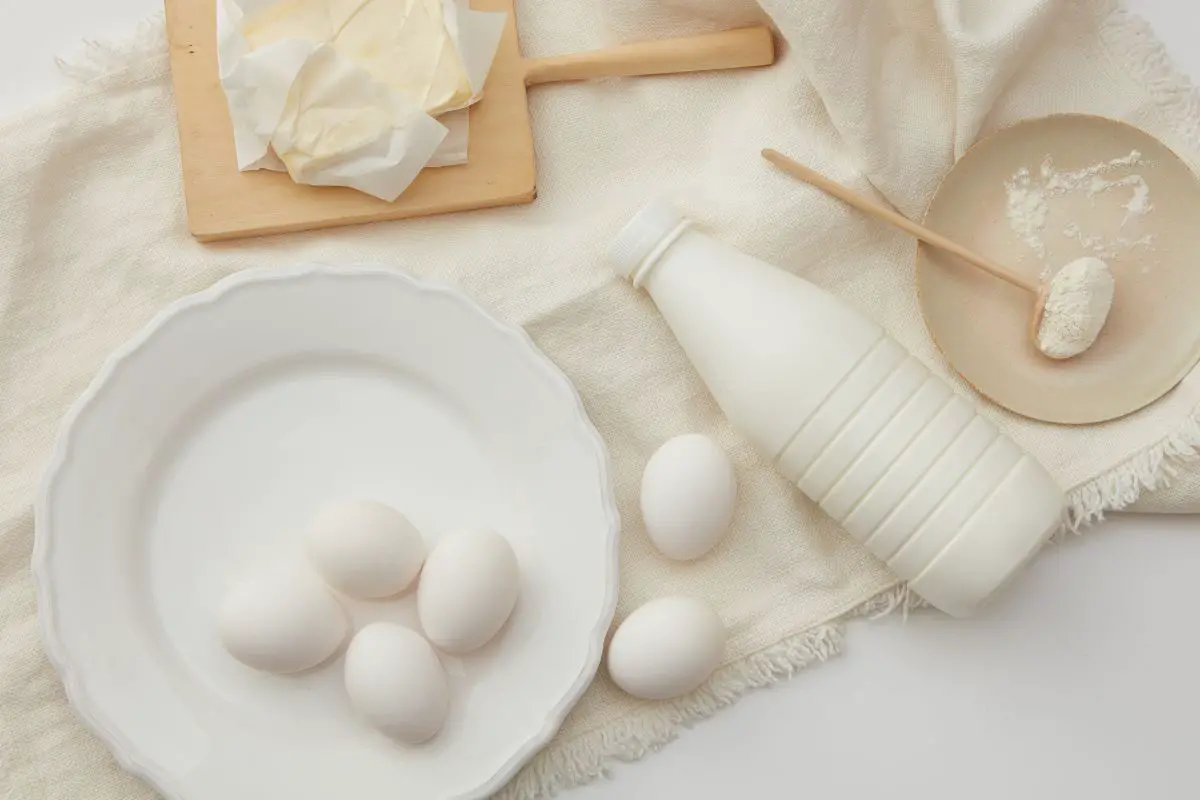
When Might Egg Wash Be Used?
Egg washing is a common practice, and even when egg is not used, the substitutes on this list provide a useful service to the cooking process for certain foods.
As we have mentioned, the most common use of egg wash is for breading food.
This is a process wherein meat, fish, or numerous other food items are coated in breadcrumbs, after which they are deep fried, air fried, or cooked in the oven to create a crispy, browned, attractive finish.
6 Substitutes For Egg Wash
Luckily for those who do not consume eggs, there are numerous substitutes on the market nowadays to accommodate anyone’s dietary needs.
1. Milk Or Cream
One notable substitute to egg wash is cow’s milk or cream – both of which can act as efficient binding agents for the breaded food, and ensures a rich, brown finish once cooked.
This is obviously not suited for vegans, or those who have lactose intolerance, but it can be an effective substitute for those who do not wish to use eggs.
One benefit of this however is that it creates the finish of egg wash, without tainting the flavor or scent of the food – as can happen with eggs or other substitutes like oil.
You can use as much as this as you want or need, and simply require a baking brush to apply to breaded products.
Another alternative is to pour it into a bowl, and dip the breaded products inside, although this can cause problems if not done with care.
2. Melted Butter
Alternatively, you can use melted butter to create a brown, crisped finish to any breaded food items.
While traditional butter is not suitable for vegans or those who cannot consume dairy, it is a good option for those with no dietary restrictions, and can really leave a good finish to most breaded food items.
Butter is also a great way to enhance the taste of the food, and add that moreish, wholesome crispiness to the finished product after cooking/frying.
However, it is best to use this sparingly, as it can cause the food to be soggy – not to mention soaking through doughier products and potentially ruining them – so as always, take care during application.
3. Almond Milk
If you are a vegan, or suffer from lactose intolerance, then a good choice for you could be almond milk.
This is a commonly used dairy substitute, and has numerous applications that include cooking, baking, and drinking.
This can work in the same way as regular milk or cream, and can help bind all of the ingredients together before cooking, and add a little extra taste to the final product.
However, as almonds have a distinctive flavor of their own, you will need to use sparingly, and be mindful when combining it with other ingredients – particularly ones that might be tainted by the nutty smell of the almonds.
4. Oil
Alternatively, you could use a form of cooking oil to get that much sought after finish to your breaded food.
There are obviously many different kinds you could use – including vegetable oil, olive oil, and coconut oil – meaning that you can make your choice based on the meal you are preparing.
Just be mindful that less really is more, not unless you want to leave a greasy, oily residue on your cooked food.
5. Honey/Maple Syrup
Depending on the dish you are preparing – and indeed the finish you are looking for – you could also use honey or maple syrup.
Obviously, this will leave a stickier finish to the food, and only really works for certain dishes, but if you are looking for something sweet, sticky, and indulgent, then this could be a good choice for you.
6. Ground Flaxseed
Finally, if you are vegan or lactose intolerant, then another good option is to use ground flaxseed.
Flaxseed is already a commonly used item in vegan cooking, and has numerous uses throughout the industry.
To use this for an egg wash substitute, you need to take the ground flaxseed, and combine it with water to create something called ‘flax egg’, and this has the same effect as traditional egg wash, creating an attractive crispy brown finish to your breaded food, and acting as a solid binding agent for all the ingredients.
For the best results, use sparingly, and when preparing it is best to allow the flaxseed to rest in the water for a few moments, so that it forms a thicker substance that is easier to brush on your food.
What Are The Benefits Of Egg Substitutes?
There are many benefits to using an egg substitute, and this is not just based on dietary requirements.
For Veganism
If you are a vegan, then you obviously cannot use eggs on your food – after all these are products from chickens, and count as consuming animals.
For this reason, many of the vegan free substitutes on this list can be a great choice, and give the same finish without crossing any ethical lines.
For Allergies
It is also possible for people to have allergies to the proteins within eggs, and as such they need an alternative when breading food so as to not suffer nasty side effects of the process.
This is where these substitutes come in, providing the same benefits of a traditional egg wash, without containing any of the biological egg proteins that can cause adverse reactions from sufferers.
For Taste
If you seek to enhance the flavor of your dish in a certain way, then you could also use an egg substitute.
Particularly with the honey and maple syrup, this can be a great way to achieve the same end, while jazzing up the flavor of your dish with a little extra additive at the end.
For Texture
In the same way, you can also make the texture of the food different, altering how it will look after cooking, and changing the nature of the dish.
Obviously honey and maple syrup will create a crispier, potentially sticky finish, but others like butter will also help to add crispness too.
For Personal Preference
Of course, it could also just be down to personal preference.
Not everyone likes eggs, and as such it is important for those people to have some alternatives they can turn to.
What’s more, many of the substitutes on this list create the same finish as traditional egg wash, without tainting the food for those who don’t like an eggy taste.
Final Thoughts
And there we have it, everything you need to know about breading, and the best substitutes for eggs when undertaking this process.
It’s true that breading food for deep frying or cooking can be a fun and tasty experience – and one that has numerous options for those with specific dietary needs.
What’s more, there has never been so many options and resources out there to give people everything they need to create a great meal.
So if you want to know some great egg substitutes for breading, then be sure to follow these methods. Something tells me you won’t be disappointed!
The 6 Best Substitutes For Egg When Breading
Course: Substitutes4
servings30
minutes40
minutes300
kcalIngredients
Milk Or Cream
Melted Butter
Almond Milk
Oil
Honey/Maple Syrup
Ground Flaxseed
Directions
- Decide on what substitute you need
- Pick a substitute from the list above
- Read what you need to substitute with
- Create the recipe and enjoy
Recipe Video
https://www.youtube.com/watch?v=mMxca6gm5JgVideo can’t be loaded because JavaScript is disabled: 5 BEST SUBSTITUTES FOR EGGS IN BAKING (https://www.youtube.com/watch?v=mMxca6gm5Jg)- What Exactly Do Chickpeas Taste Like? Is There A Distinct Flavor? - September 30, 2023
- Top 11 Low Carb Options at Sonic Drive-In for Keto Diet - September 30, 2023
- What Should You Serve Alongside Potato Salad? 8 Incredible Side Dishes - September 30, 2023

